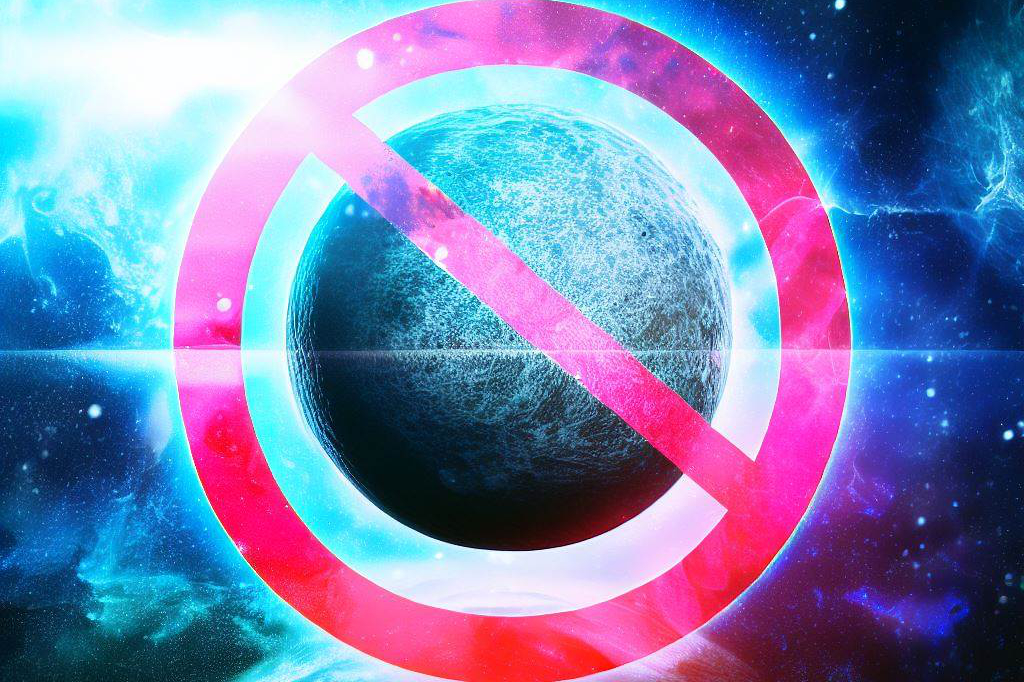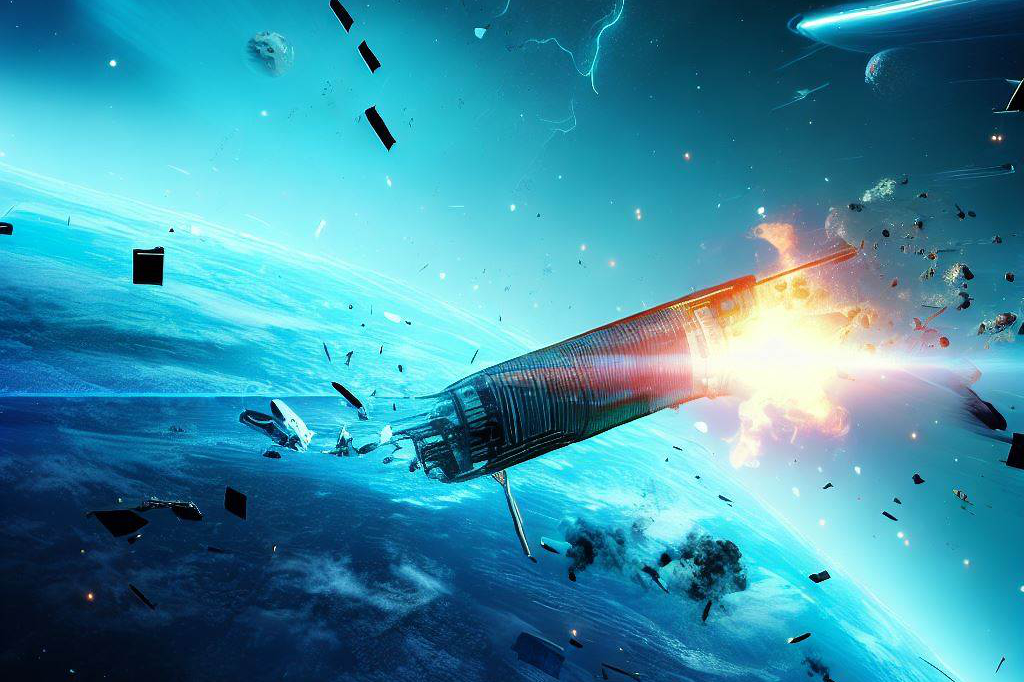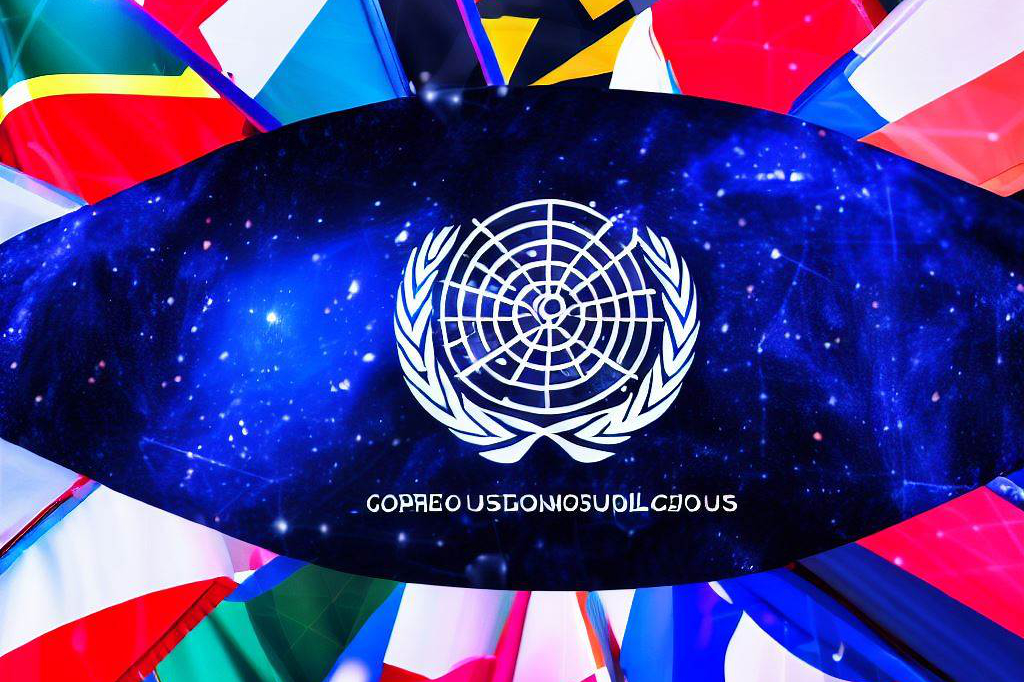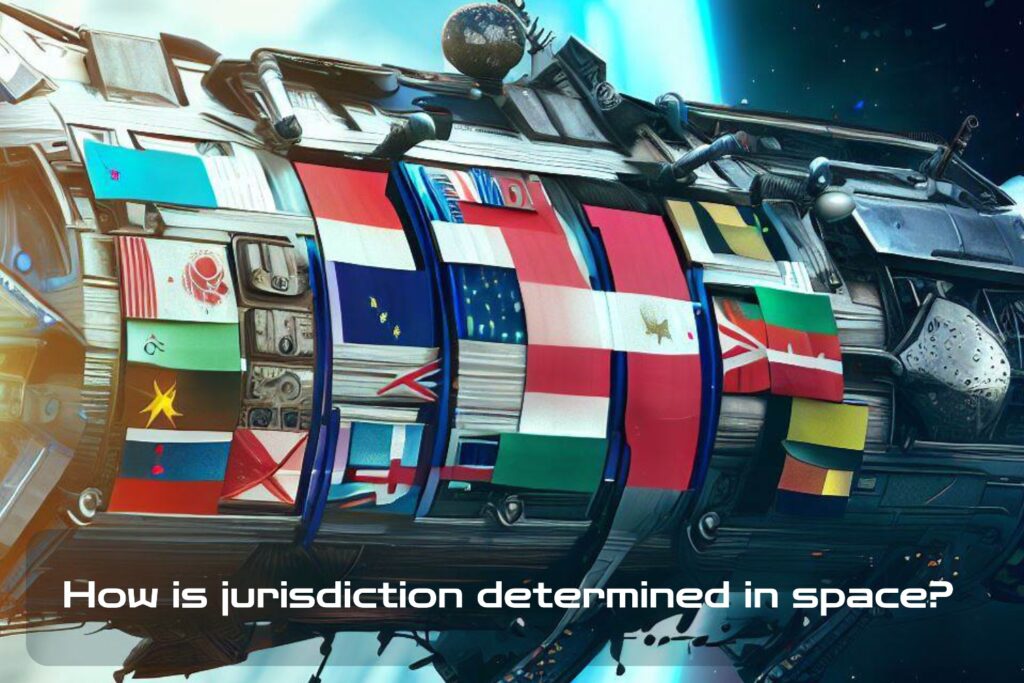Space Jurisdiction: Navigating the Final Frontier
Space exploration has been one of humanity’s greatest achievements, with numerous countries and private enterprises dedicated to pushing the boundaries of our understanding of the universe. However, as we venture further into space, the issue of jurisdiction becomes increasingly complex.
Who has the authority to govern and regulate activities in space?
How is jurisdiction determined in an environment that belongs to no one?
In this article, we will explore these questions and more.
The Importance of Jurisdiction in Space Exploration

The importance of jurisdiction in space exploration cannot be overstated. It determines who has legal authority over spacecraft and activities carried out in space. Without clear jurisdictional regulations, conflicts could arise between countries or companies over ownership, liability, or even criminal activity.
Jurisdiction is also important for establishing property rights on celestial bodies such as planets or asteroids. Countries that establish a presence on these celestial bodies could claim ownership over them under international law if they are able to demonstrate effective control over them for a sufficient period.
Determining Jurisdiction in Space

Jurisdiction is determined through international agreements and treaties such as the Outer Space Treaty signed by more than 100 countries, including Russia, China, and USA. The treaty establishes that outer space is not subject to national appropriation or claims of sovereignty by any country; however, it does allow for territorial jurisdiction. Territorial jurisdiction applies only to the area immediately surrounding a country’s launch facilities or spacecraft.
For example, if a French satellite causes damage when it crashes into another satellite while orbiting Earth, France would have territorial jurisdiction over any legal action resulting from that accident. Functional jurisdiction involves regulating activities carried out by spacecraft, including launching satellites or removing space debris.
International organizations such as the UN Committee on the Peaceful Uses of Outer Space (COPUOS) help regulate functional jurisdiction through their work on developing international space law. Jurisdiction plays a crucial role in determining legal authority over activities carried out in space.
International agreements and treaties establish the boundaries and regulations for jurisdictional claims, including territorial and functional jurisdiction. As humanity continues to explore the final frontier, it will be essential to continue working towards clear and fair regulations that promote peaceful cooperation in outer space.
Territorial Jurisdiction: Outer Space Treaty and Ownership of Celestial Bodies

When it comes to space exploration, one of the most important questions that arises is who has jurisdiction over celestial bodies in space. To answer this question, we need to look at the Outer Space Treaty, an international treaty signed by more than 100 countries that provides a framework for the exploration and use of outer space. According to the Outer Space Treaty, no country can claim sovereignty over any celestial body in outer space.
This means that no country can own the moon or any other planet or asteroid. However, countries can claim ownership over objects they have launched into space, such as satellites and spacecraft.
Moreover, countries are allowed to undertake activities on celestial bodies as long as they are used for peaceful purposes and do not cause harm to other celestial bodies. For instance, if a country plans on mining resources from an asteroid for research purposes only, then it is allowed under the treaty.
Despite these restrictions on territorial jurisdiction, some experts believe that there might be loopholes in the treaty leading to future conflicts over the ownership rights of celestial bodies. As more countries venture into space exploration and resource mining becomes a lucrative industry, it remains to be seen how these issues will be resolved.
Functional Jurisdiction: The Key to Space Exploration

When we think of jurisdiction, we often think of laws and regulations that govern territories or individuals. However, in space exploration, functional jurisdiction plays a critical role in determining how space activities are regulated and managed.
Functional jurisdiction refers to the legal authority that countries have over specific space activities such as satellite launches, space debris removal, and other commercial space ventures. Satellite launches are a significant example of how functional jurisdiction plays a pivotal role in regulating space activities.
The launch of satellites requires the approval of national regulatory bodies for safety reasons. These regulatory bodies not only ensure that the satellite meets technical requirements but also prevent interference with other satellites or with other nations’ security interests.
Another crucial part of functional jurisdiction is the management and regulation of space debris removal. Space debris poses a severe threat to functioning satellites and spacecraft operating in low Earth orbit.

Regulations have been established by international organizations such as NASA and ESA to ensure spacecraft operators remove their debris when necessary. The UN Committee on the Peaceful Uses of Outer Space (COPUOS) has taken an active role in regulating functional jurisdiction since its establishment in 1958.
COPUOS is responsible for developing international laws related to outer space and regularly works with member states to create guidelines for safe conduct regarding all aspects of space exploration. Functional jurisdiction is essential for regulating various aspects surrounding outer-space exploration, like satellite launches and managing hazardous situations related to debris removal.
International organizations such as COPUOS provide guidelines towards the ‘peaceful use’ principle established by various international treaties. Regulating spaceships’ functionality can be challenging because it involves complex technicalities; however, organizations like these continue working towards making innovative but safe inventions possible for our future endeavors above Earth’s atmosphere!
Criminal Jurisdiction
Bringing Law and Order to the Final Frontier

As space exploration becomes more common, so too does the potential for criminal activities. What happens when a crime is committed in space? Who has jurisdiction over such crimes?
These are questions that have been raised as humanity reaches for the stars. One example of a crime that could occur in space is theft.
Imagine an astronaut stealing equipment from another nation’s spacecraft or an international research facility. Another is assault, where an astronaut attacks their fellow crew members or a stranger on board a spacecraft.
In such cases, it would be necessary to determine which legal system has jurisdiction over these crimes. The Outer Space Treaty dictates that countries must bear responsibility for their own activities in space, including those of their astronauts and spacecraft.
This means that if a crime is committed by an astronaut from one country while aboard another country’s spacecraft, both countries have jurisdiction over the case. As such, there are no specific laws governing criminal activities in space yet, but nations can apply their own laws to citizens who commit crimes whilst they are out of Earth’s atmosphere.
Enforcing Law and Order

How can countries enforce criminal law in space? The answer lies in the cooperation between nations and international organizations like the United Nations Committee on the Peaceful Uses of Outer Space (COPUOS). COPUOS has developed guidelines for dealing with criminal activities related to space exploration and ensuring compliance with international laws.
In addition to COPUOS, individual nations must also ensure they have adequate legal frameworks to deal with criminal activity in space. Some countries, like the United States and Russia, have already established laws governing criminal behavior within their national aerospace agencies.
This includes provisions allowing them to apply domestic law to any citizen who commits a crime while on board a spacecraft. It is important for all nations to establish legal frameworks for dealing with criminal activity in space.
As human activity in space increases, so too does the potential for criminal activity. Cooperation and collaboration between nations will be essential to maintaining law and order in the final frontier.
Final Thoughts on the Challenges and Opportunities for International Cooperation in Regulating Jurisdictional Issues

Despite these challenges, there are also many opportunities for international cooperation when it comes to regulating issues of jurisdiction in space. The Outer Space Treaty serves as a foundation for establishing common principles between different countries, while organizations like the UN Committee on the Peaceful Uses of Outer Space can facilitate discussions and negotiations.
In an age where space exploration is becoming increasingly important both for scientific advancement and economic reasons, it’s crucial that we find ways to work together towards shared goals. By promoting transparency, open communication channels, and a willingness to compromise, we can overcome some of the challenges posed by issues of jurisdiction in space.
So while there may be no easy answers when it comes to determining who has authority over particular activities or areas beyond our planet’s atmosphere, there are reasons to be optimistic about our ability as a global community to collaborate effectively on these issues. Ultimately, it will be up to us as individuals and nations alike to prioritize cooperation over competition when it comes to exploring this final frontier.
FAQs

1. Q: Why is jurisdiction important in space exploration?
A: Jurisdiction is crucial in space exploration as it determines the legal authority over spacecraft and activities carried out in space. Clear jurisdictional regulations are necessary to avoid conflicts over ownership, liability, and criminal activity.
2. Q: How is jurisdiction determined in space?
A: Jurisdiction in space is determined through international agreements and treaties such as the Outer Space Treaty. Territorial jurisdiction applies to the area surrounding a country’s launch facilities or spacecraft, while functional jurisdiction involves regulating space activities and managing issues like satellite launches and debris removal.
3. Q: Can countries claim ownership of celestial bodies in space?
A: No, according to the Outer Space Treaty, no country can claim sovereignty over any celestial body in outer space, including the moon, planets, or asteroids. However, countries can claim ownership over objects they have launched into space, such as satellites and spacecraft.
4. Q: Are there any restrictions on territorial jurisdiction in space?
A: Yes, territorial jurisdiction in space is limited to the immediate area surrounding a country’s launch facilities or spacecraft. It does not extend to celestial bodies or outer space as a whole. The Outer Space Treaty prohibits national appropriation or claims of sovereignty in outer space.
5. Q: How can criminal activities in space be addressed?
A: When a crime is committed in space, countries bear responsibility for their own activities and have jurisdiction over their astronauts and spacecraft. While specific laws governing criminal activities in space are yet to be established, nations can apply their own laws to citizens who commit crimes while in space. Cooperation between nations and international organizations like COPUOS is crucial in addressing criminal activities in space and ensuring compliance with international laws.
6. Q: How can countries enforce criminal law in space?
A: Countries can enforce criminal law in space through cooperation and collaboration. International organizations like COPUOS provide guidelines for dealing with criminal activities related to space exploration. Additionally, individual nations must establish adequate legal frameworks within their national aerospace agencies to govern criminal behavior in space and apply domestic laws when necessary.
7. Q: What are the opportunities for international cooperation in regulating jurisdictional issues in space?
A: Despite the challenges, there are numerous opportunities for international cooperation in regulating jurisdictional issues in space. The Outer Space Treaty serves as a foundation for common principles between countries, and organizations like COPUOS facilitate discussions and negotiations. By promoting transparency, open communication, and a willingness to compromise, countries can work together towards shared goals in space exploration and regulation.
8. Q: How can humanity overcome the challenges of jurisdiction in space exploration?
A: Overcoming the challenges of jurisdiction in space exploration requires global cooperation and prioritizing collaboration over competition. By continuing to develop clear and fair regulations, promoting peaceful cooperation, and establishing legal frameworks, we can navigate the complexities of jurisdiction and ensure the peaceful and responsible exploration of the final frontier.
TL;DR …
– 🚀 Jurisdiction is crucial in space exploration as it determines legal authority over spacecraft and activities.
– 🌍 Territorial jurisdiction in space applies to the area surrounding a country’s launch facilities or spacecraft.
– 🛰️ Functional jurisdiction regulates specific space activities such as satellite launches and debris removal.
– 🌌 The Outer Space Treaty prohibits countries from claiming sovereignty over celestial bodies.
– 🌙 Ownership of celestial bodies is not allowed, but countries can claim ownership of objects they launch into space.
– 🔒 Criminal activities in space are governed by the responsibility of countries for their own activities.
– 🌐 International cooperation and organizations like COPUOS play a crucial role in addressing jurisdictional issues in space.
– 💼 The challenges of jurisdiction in space can be overcome through transparency, open communication, and collaboration among nations.

C M, a seasoned editor, journalist, and consultant, is deeply fascinated by the convergence of technology, space, and the future of humanity.
With a particular interest in transhumanity, futurology, and the philosophical and ethical dimensions of these domains, C M serves as the lead contributor to SpaceSpotlight and TranscendSphere.
When not penning insightful articles on these rapidly evolving fields, C M indulges in their love for podcasts and books, proudly embracing their status as a ‘Happy Nerd Extraordinaire!’



